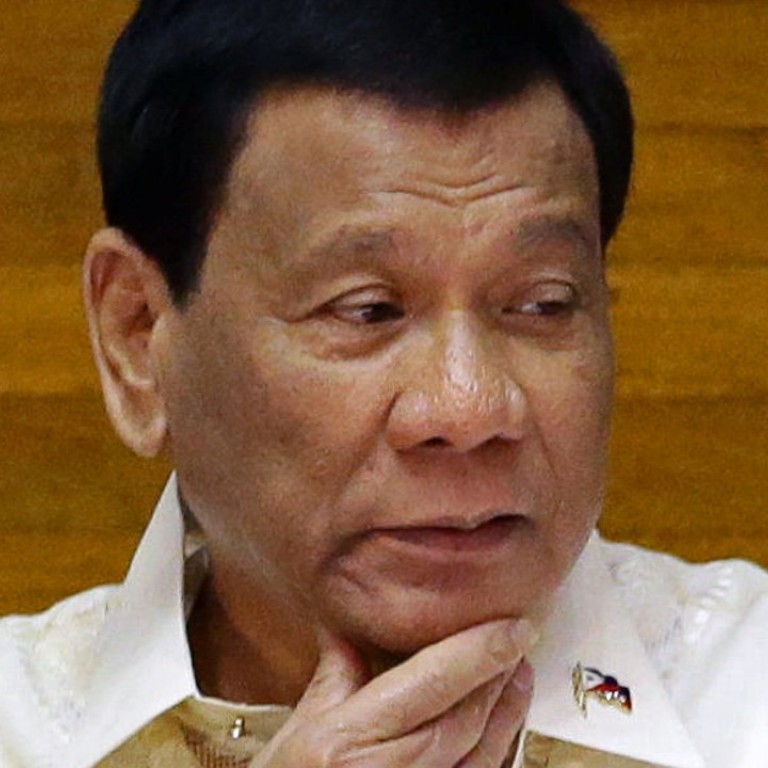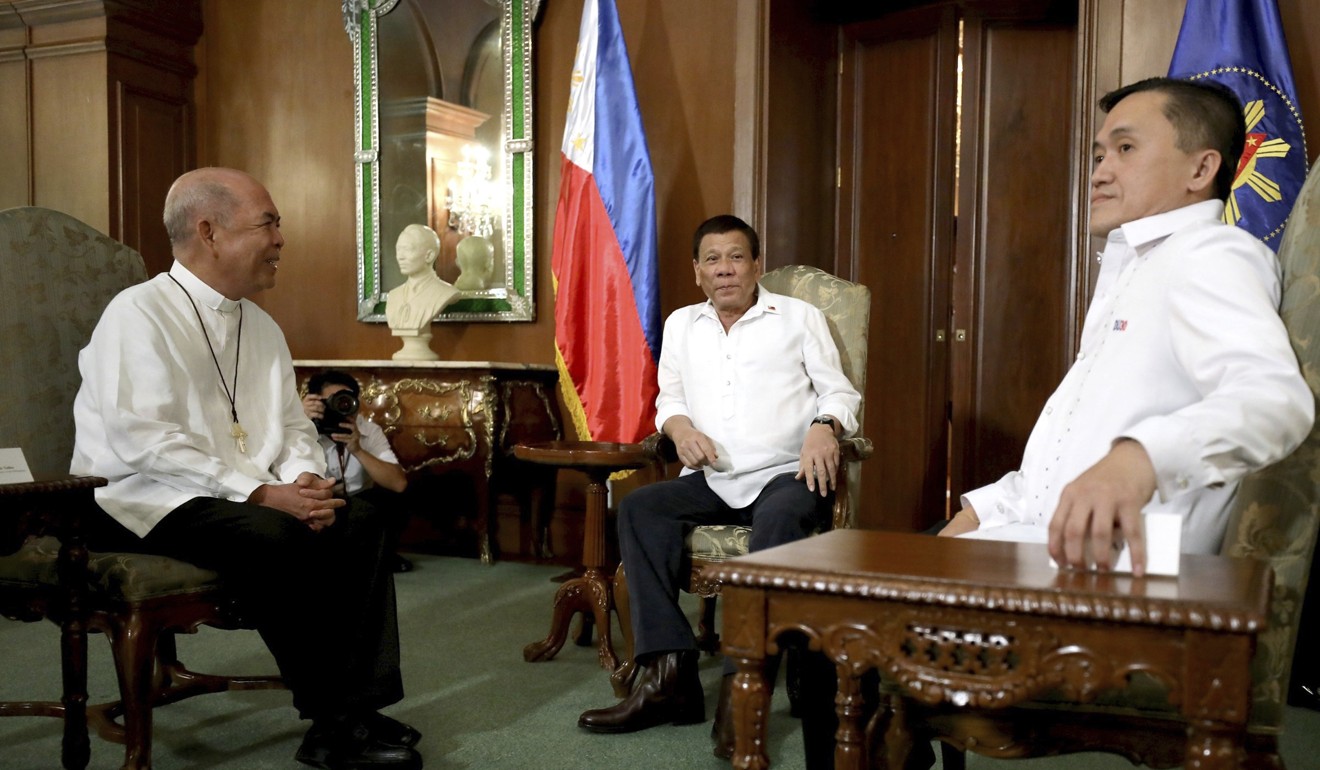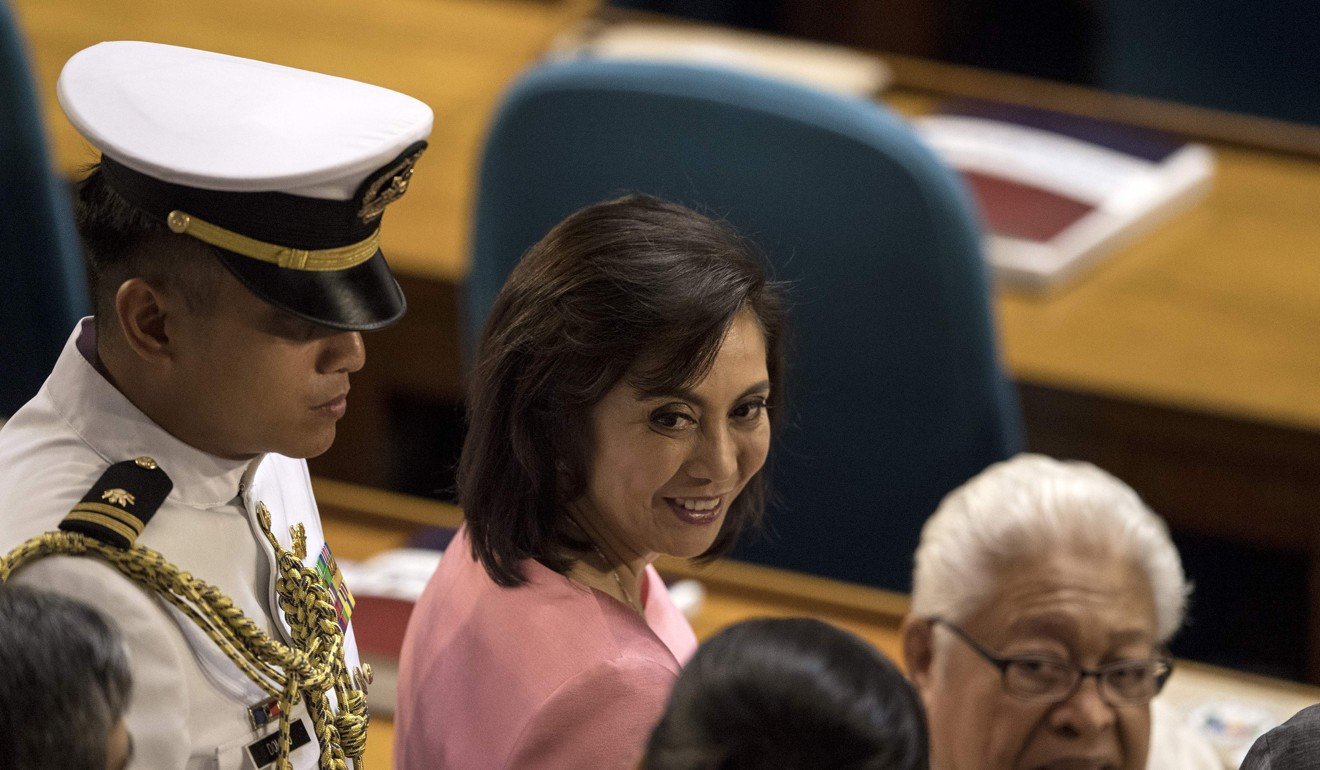
Time running out politically for Rodrigo Duterte’s pursuit of warmer ties with China
While the Philippine President remains committed to improving relations with Beijing, it remains to be seen how long his strategy will remain viable, Richard Heydarian writes
Few saw it coming. Rodrigo Duterte’s third state-of-the-nation address was not only pithy and cuss-free, but also consistently on-script and sombre throughout what was arguably his most disciplined speech to date.
There was, to the disappointment of many diehard supporters, a remarkable lack of colourful semiotic overdrive and thunderous rhetoric in the Philippine President’s 48-minute speech. Yet, Duterte had serious reason to act more statesmanlike than playfully populist.
Though still popular, his approval ratings are at a historic low, domestic opposition is crystallising, infighting among allies has intensified, and the public has begun to sour on his major policies, including his rapprochement with China.
Consequently, Duterte wasted no time using the bully pulpit to present himself as a pragmatic, wise and selflessly determined leader who was willing to do everything necessary, even if it is unpopular, for the benefit of his country.

Over the past month, his intensified squabble with the Catholic Church and rising inflation rates have chipped away at his political capital. According to Social Weather Stations, a leading Manila-based polling agency, Duterte’s satisfaction ratings dropped by as much 11 per cent in the second quarter of this year, reaching a historic low of net support of 45 per cent.
Though still relatively high, Duterte’s numbers should be seen in the context of the Philippines, where presidents tend to have a long honeymoon, usually extending halfway into their six-year term.
Is Gloria Arroyo setting herself up to be Duterte’s successor?
Crucially, his ratings suffered a huge setback in the country’s seat of power, Metro-Manila, falling by as much as 20 per cent. Similar declines of 19 per cent were observed in other urban areas.
It took extraordinarily strong support in his home island of Mindanao, where he enjoys close to 100 per cent support, to mitigate his declining political cachet.

More crucially, Duterte’s central policies are also facing huge public resistance. His push for constitutional change is opposed by most Filipinos, according to the latest Pulse Asia survey.
His foreign policy, in particular, has met with even more vociferous domestic defiance.
More than eight out of 10 Filipinos called for the president to take a tougher stance against China in the South China Sea, according to a Social Weather Stations survey.
Duterte vows for first time to ‘defend our interest’ in South China Sea
Almost nine out of 10 wanted the government to take back Philippine-claimed land features occupied by China. Surveys also showed that most Filipinos wanted Duterte to reassert the Philippines’ landmark arbitration award against China.
In short, the Philippine public repudiated Duterte’s decision to “set aside” the arbitration ruling in favour of better relations with Beijing and his call for smaller claimant states to act “meek” and “humble” in their policies towards the Asian powerhouse.
In his state-of-the-nation speech, however, Duterte remained defiant.
“On international relations, we shall continue to assert and pursue an independent foreign policy,” he reassured the Filipino public, arguing that the country’s need to “continue to reach out to all nations” was in the Philippines’ long-term national interest.
Among the dignitaries on hand for his speech were no less than Vice-President Leni Robredo and acting Supreme Court Chief Justice Antonio Carpio, both of whom have called on the president to take a tougher stance against China.
With ratings plummeting, how long can Duterte last? God knows
Earlier this month, both spoke at a high-profile event marking the second anniversary of the Philippines’ arbitration award in the South China Sea, where an arbitral tribunal based at The Hague ruled against China’s nine-dash-line and “historic rights” claims in the area.
The nine-dash-line is an undefined, vaguely located demarcation line that encircles as much as 90 per cent of the contested waters.
Duterte adamantly maintained that the bilateral consultation mechanism with China and the multilaterally negotiated code of conduct in the South China Sea would carry the day.
The event was hosted by Stratbase-Albert Del Rosario Institute, an influential think tank affiliated with its namesake, former Philippine foreign secretary Albert Del Rosario.
During the event, Robredo enjoined Duterte to use the “hard-won victory” as “the foundation for all future engagements” in the South China Sea with China.
Carpio, meanwhile, lashed out at the president for placing the ruling in the “deep freeze” amid warming bilateral relations with China.
He has called on the president to file additional cases against China for its continued reclamation and militarisation activities in the South China Sea.
In his address, however, Duterte signalled his commitment to stay the course in foreign affairs. He celebrated “re-energised relations with China”, which, according to him, have produced an “unprecedented level of cooperation” between the two neighbours.
Duterte praised China as a friendly neighbour and an indispensable partner in his war on drugs.
To mollify his critics, he reassured them that “improved relationship with China” doesn’t mean that his administration will “waver in our commitment to defend our interests” in the South China Sea.
He made it clear, however, that the path forward is dialogue and dialogue alone, since “war isn’t an option”.
Duterte: China will be ‘fair’ when resolving maritime disputes
Duterte adamantly maintained that the bilateral consultation mechanism with China and the multilaterally negotiated code of conduct in the South China Sea would carry the day.
In his third year in office, Duterte signalled that he is still fully committed to pursuing warmer ties with China, but it remains to be seen for how long this strategy will remain politically viable.
Richard Heydarian is a Manila-based academic and author

